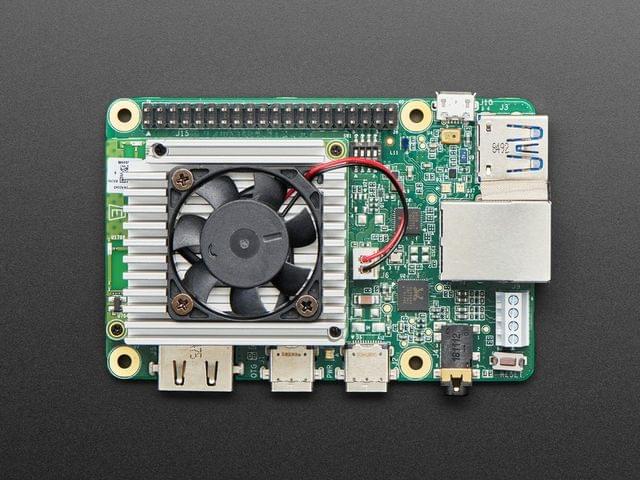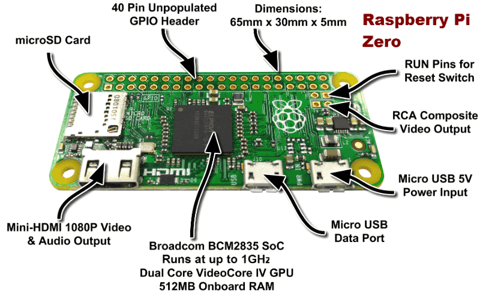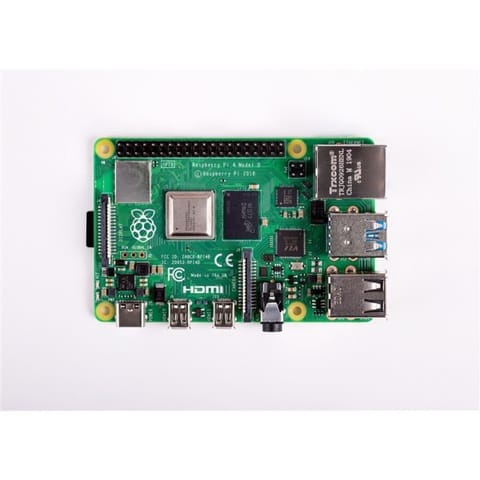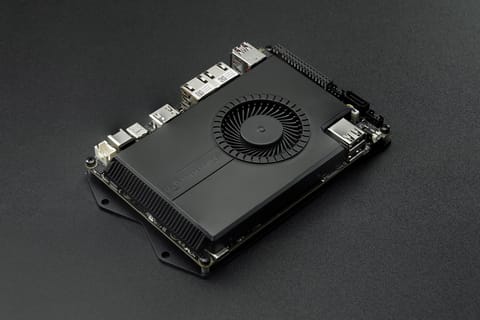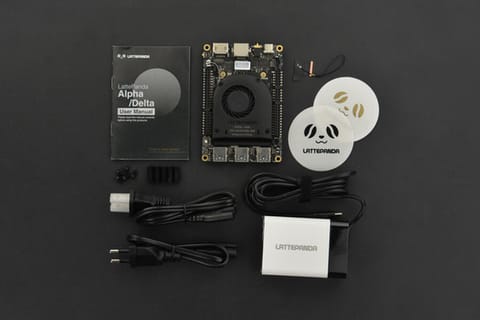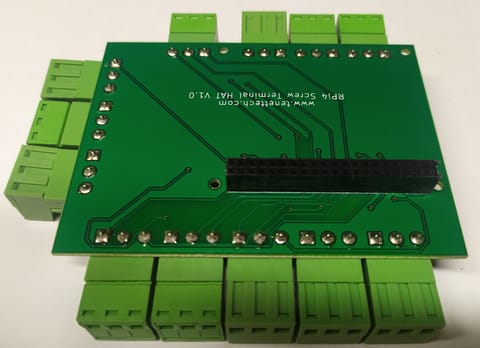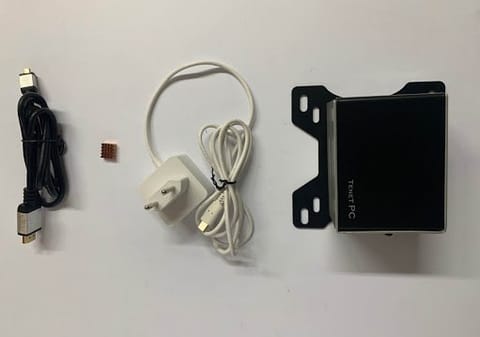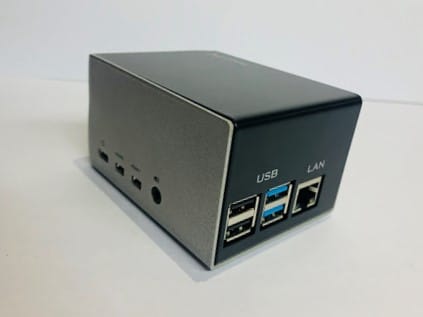-
TERMINALS
- TERMINALS
-
WIRELESS MODULES
- WIRELESS MODULES
-
DEVELOPMENT BOARDS & KITS
- DEVELOPMENT BOARDS & KITS
-
RF and Wireless
- RF and Wireless
-
SINGLE BOARD COMPUTER
- SINGLE BOARD COMPUTER
-
BREAKOUT BOARDS
- BREAKOUT BOARDS
-
LED
- LED
-
LCD & DISPLAYS
- LCD & DISPLAYS
-
TEST AND MEASUREMENT
- TEST AND MEASUREMENT
-
DEVELOPMENT BOARDS AND IC's
- DEVELOPMENT BOARDS AND IC's
-
CABLES/WIRES/FANS
- CABLES/WIRES/FANS
-
EMBEDDED COMPUTERS
- EMBEDDED COMPUTERS
-
INDUSTRAL AUTOMATION AND CONTROL
- INDUSTRAL AUTOMATION AND CONTROL
-
COMPUTER EQUIPMENT
- COMPUTER EQUIPMENT
-
CONNECTORS & INTERCONNECTS
- CONNECTORS & INTERCONNECTS
-
MOTORS/DRIVERS/ACTUATORS/MODULES
- MOTORS/DRIVERS/ACTUATORS/MODULES
-
MAKER/DIY EDUCATIONAL
- MAKER/DIY EDUCATIONAL
-
BASIC COMPONENTS
- BASIC COMPONENTS
-
TOOLS & ACCESSORIES
- TOOLS & ACCESSORIES
-
FPGA HARDWARE
- FPGA HARDWARE
-
ARTILA
- ARTILA
-
POWER SUPPLIES
- POWER SUPPLIES
-
ROBOTICS & AUTOMATION
- ROBOTICS & AUTOMATION
-
TRANSDUCERS
- TRANSDUCERS
-
MEMORY CARDS & MODULES
- MEMORY CARDS & MODULES
-
SOFTWARE
- SOFTWARE
Description
The Coral Dev Board is a single-board computer that's ideal when you need to perform fast machine learning (ML) inferencing in a small form factor. You can use the Dev Board to prototype your embedded system and then scale to production using the on-board Coral System-on-Module (SoM) combined with your custom PCB hardware.
The SoM provides a fully-integrated system, including NXP's iMX8M system-on-chip (SoC), eMMC memory, LPDDR4 RAM, Wi-Fi, and Bluetooth, but its unique power comes from Google's Edge TPU coprocessor. The Edge TPU is a small ASIC designed by Google that provides high performance ML inferencing with a low power cost. For example, it can execute state-of-the-art mobile vision models such as MobileNet v2 at 400 FPS, in a power efficient manner.
The baseboard provides all the peripheral connections you need to prototype a project, including USB 2.0/3.0 ports, DSI display interface, CSI-2 camera interface, Ethernet port, speaker terminals, and a 40-pin I/O header.
We have support for the Coral board in Adafruit Blinka so you can use a ton of our CircuitPython libraries directly from this board for easy hardware interfacing.
A 5V 3A USB C power supply is recommended for powering this dev board beast.
Key benefits of the Dev Board:
- High-speed and low-power ML inferencing (4 TOPS @2W)
- A complete Linux system (running Mendel, a Debian derivative)
- Prototyping and evaluation board for the small Coral SoM (40 x 48 mm)
Technical details
Features
- Edge TPU System-on-Module (SoM)
- NXP i.MX 8M SoC (Quad-core Cortex-A53, plus Cortex-M4F)
- Google Edge TPU ML accelerator coprocessor
- Cryptographic coprocessor
- Wi-Fi 2x2 MIMO (802.11b/g/n/ac 2.4/5GHz)
- Bluetooth 4.1
- 8GB eMMC
- 1GB LPDDR4
- USB connections
- USB Type-C power port (5V DC)
- USB 3.0 Type-C OTG port
- USB 3.0 Type-A host port
- USB 2.0 Micro-B serial console port
- Audio connections
- 3.5mm audio jack (CTIA compliant)
- Digital PDM microphone (x2)
- 2.54mm 4-pin terminal for stereo speakers
- Video connections
- HDMI 2.0a (full size)
- 39-pin FFC connector for MIPI DSI display (4-lane)
- 24-pin FFC connector for MIPI CSI-2 camera (4-lane)
- MicroSD card slot
- Gigabit Ethernet port
- 40-pin GPIO expansion header
- Supports Mendel Linux (derivative of Debian)
- Home
- SINGLE BOARD COMPUTER
- Google Coral Development Board
Google Coral Development Board
SIZE GUIDE
- Shipping in 10-12 Working days
Description of product
Description
The Coral Dev Board is a single-board computer that's ideal when you need to perform fast machine learning (ML) inferencing in a small form factor. You can use the Dev Board to prototype your embedded system and then scale to production using the on-board Coral System-on-Module (SoM) combined with your custom PCB hardware.
The SoM provides a fully-integrated system, including NXP's iMX8M system-on-chip (SoC), eMMC memory, LPDDR4 RAM, Wi-Fi, and Bluetooth, but its unique power comes from Google's Edge TPU coprocessor. The Edge TPU is a small ASIC designed by Google that provides high performance ML inferencing with a low power cost. For example, it can execute state-of-the-art mobile vision models such as MobileNet v2 at 400 FPS, in a power efficient manner.
The baseboard provides all the peripheral connections you need to prototype a project, including USB 2.0/3.0 ports, DSI display interface, CSI-2 camera interface, Ethernet port, speaker terminals, and a 40-pin I/O header.
We have support for the Coral board in Adafruit Blinka so you can use a ton of our CircuitPython libraries directly from this board for easy hardware interfacing.
A 5V 3A USB C power supply is recommended for powering this dev board beast.
Key benefits of the Dev Board:
- High-speed and low-power ML inferencing (4 TOPS @2W)
- A complete Linux system (running Mendel, a Debian derivative)
- Prototyping and evaluation board for the small Coral SoM (40 x 48 mm)
Technical details
Features
- Edge TPU System-on-Module (SoM)
- NXP i.MX 8M SoC (Quad-core Cortex-A53, plus Cortex-M4F)
- Google Edge TPU ML accelerator coprocessor
- Cryptographic coprocessor
- Wi-Fi 2x2 MIMO (802.11b/g/n/ac 2.4/5GHz)
- Bluetooth 4.1
- 8GB eMMC
- 1GB LPDDR4
- USB connections
- USB Type-C power port (5V DC)
- USB 3.0 Type-C OTG port
- USB 3.0 Type-A host port
- USB 2.0 Micro-B serial console port
- Audio connections
- 3.5mm audio jack (CTIA compliant)
- Digital PDM microphone (x2)
- 2.54mm 4-pin terminal for stereo speakers
- Video connections
- HDMI 2.0a (full size)
- 39-pin FFC connector for MIPI DSI display (4-lane)
- 24-pin FFC connector for MIPI CSI-2 camera (4-lane)
- MicroSD card slot
- Gigabit Ethernet port
- 40-pin GPIO expansion header
- Supports Mendel Linux (derivative of Debian)
NEWSLETTER
Subscribe to get Email Updates!
Thanks for subscribe.
Your response has been recorded.
INFORMATION
ACCOUNT
ADDRESS
Tenet Technetronics# 2514/U, 7th 'A' Main Road, Opp. to BBMP Swimming Pool, Hampinagar, Vijayanagar 2nd Stage.
Bangalore
Karnataka - 560104
IN
Tenet Technetronics focuses on “Simplifying Technology for Life” and has been striving to deliver the same from the day of its inception since 2007. Founded by young set of graduates with guidance from ardent professionals and academicians the company focuses on delivering high quality products to its customers at the right cost considering the support and lifelong engagement with customers. “We don’t believe in a sell and forget model “and concentrate and building relationships with customers that accelerates, enhances as well as provides excellence in their next exciting project.


